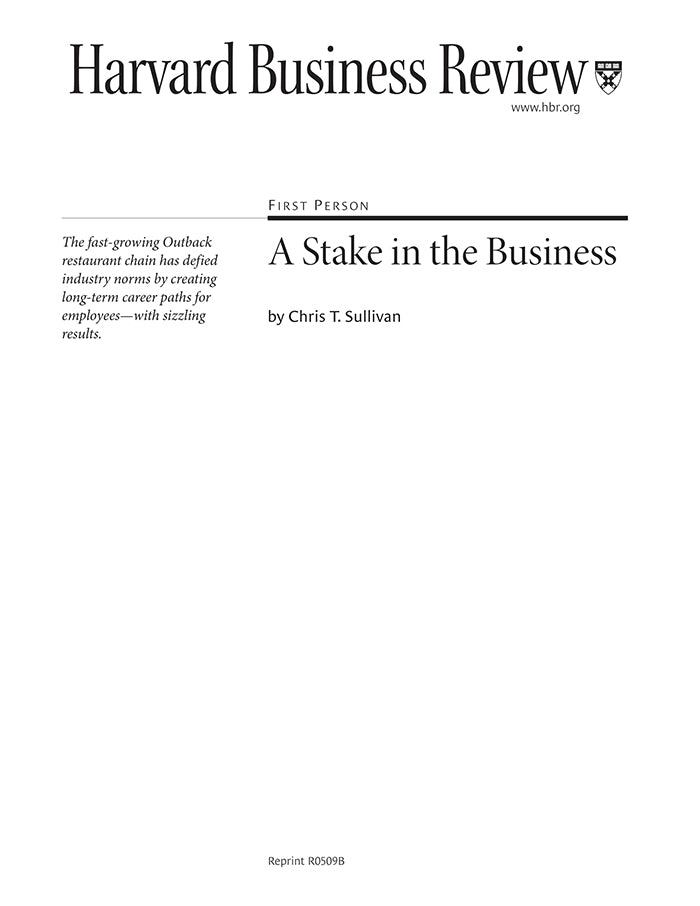Stake in the Business
受取状況を読み込めませんでした
When Chris Sullivan and three friends opened the first Outback Steakhouse in March 1988, in Tampa, Florida, they were hoping it would be successful enough to spawn a few more and maybe some other kinds of restaurants as well. Since then, their chain of Australia-themed restaurants has grown to some 900 locations and counting--plus another 300 or so "concept" restaurants that operate from under Outback's corporate umbrella. Growth like that doesn't happen accidentally, Sullivan says, but it certainly wasn't part of the original plan. In this first-person account, Outback's chairman describes the organization's formula for growth and development, which is consciously rooted in the founders' belief in putting people first. They've created an organizational model in which field managers make most of the decisions, garner the rewards, and live with the consequences. Specifically, the founders believe that the most effective way to make customers happy is first to take care of the people who cook for them, serve them, and supervise operations at the restaurants. Outback servers have fewer tables to worry about than those at other restaurant chains; the cooks have bigger, cooler, better-equipped kitchens; and the supervisors work their way up the ranks toward an equity stake in the restaurant or region they run. There are no administrative layers between field managers and the executives at headquarters. Giving employees good working conditions and the chance to become owners has proved to be good business: Turnover among hourly employees is low, and Outback and its subsidiaries opened 120 restaurants last year, increasing sales by 20.1%. The company must grow to keep offering career opportunities to its workers; in turn, those opportunities ensure that Outbackers remain committed to making customers happy and the company successful.
【書誌情報】
ページ数:12ページ
サイズ:A4
商品番号:HBSP-R0509B
発行日:2005/9/1
登録日:2012/3/28


